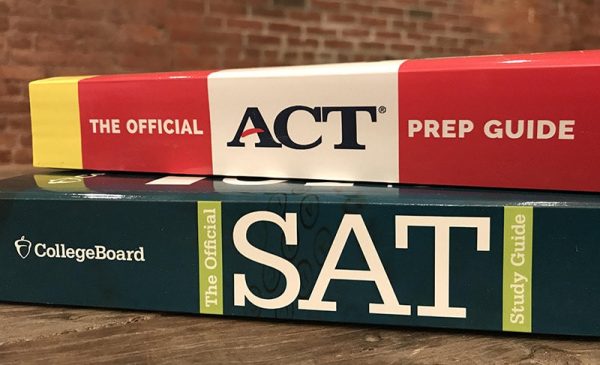Test-optional policy strives to promote diversity amongst applicants
With DePaul University igniting the growth of the test-optional movement ten years ago, colleges worldwide have adopted and seen the merits of test optional schools. According to an article from Forbes.com, when the University of Chicago announced last summer that it would no longer require undergraduate applicants to submit ACT or SAT scores, it became one of the nation’s most elite universities to adopt a test-optional admissions policy. When a college or university is “test-optional,” it means that they don’t require SAT or ACT scores from applicants in order to be considered for admission.
“Coming from working at a school that wasn’t test optional, I was very excited to start working at DePaul,” DePaul University undergraduate admissions counselor, Megan Hoinkes, said. “Although majority of the applicants don’t choose to go the test-optional route, it initially really helped open the doors to DePaul university and leveled the playing ground.”
But the decision of an international powerhouse such as University of Chicago to drop its testing requirement gives the movement extra momentum and growth, resulting in future predictions that major public universities like the University of California will also consider going test-optional.
Senior Alannah Rodrigues is applying to University of Chicago but still prefers to send in her scores.
“I personally feel like I’m hiding something that I don’t necessarily need to hide by not sending my score,” Rodrigues said. “It’s more for peace of mind that I send it, so that I don’t feel like I gave the school every reason to accept [or reject] me.”
According to Rodrigues, although she still chose to send in her standardized test scores, what she writes in her essay and her take on that is so much more important to her than what her score is. It helps her realize the value in what she’s done outside of school and that a single score doesn’t define her entire highschool success.
“College admissions for years have been programmed the same way of requiring standardized testing,” post-secondary counselor Paul Genovese said. “Some college admission offices are strongly trying to change that philosophy and admit kids with things that will help them make a good decision.”
For colleges electing to make admission tests optional, a frequent rationale is that such a policy will increase the diversity of the applicant pool. Socioeconomic groups that lack access to the public education are seen at a disadvantage when admission policies require standardized tests, so a school that can find ways to accurately assess these applicants without test scores will typically be seen with a more diverse incoming class. However, according to Genovese, it is not a way to gimmick applicants and increase diversity.
“How students do on standardized testing is not highly correlated with income,” Genovese said. “A piece of it could be that going to a test prep agency does cost more money and sending additional fees for scores could raise the price, but I believe that economics is not the main reason. Test-optional provides students with an opportunity who don’t feel their score accurately represents them and gives college another way to assess their application holistically.”
On the other hand, according to Rodrigues, students with higher income have access to more tests and tutoring. They also have more time because they don’t need to work to get to hang out with friends or support their family.
“As for an equity standpoint, University of Chicago is located in an area lacks great access to public education,” Rodrigues said. “So that could contribute to the reason why the college itself is test-optional.”
According to Hoinkes, if you do not reach certain benchmarks in school subjects, the standardized tests will become a challenge, but for that reason, students are given the option to go test-optional and should not worry about one test ruining their life.
However, de-emphasizing the importance of standardized testing is not what test-optional colleges aim to do. According to Genovese, there is a fine line implemented because the state of Illinois mandates the requirement of standardized testing for all juniors. Therefore, the norm today is still to submit standardized test scores.
Test-optional or test-flexible colleges and universities can be attractive options for students who have strong academic records but are not the best test takers. Test-optional admissions practices allow students to show who they are as a person and how they will contribute to the campus community, without wondering if one score on one exam will keep them from entering their their target, reach or likely schools.
“If you do decide to go the test-optional route, there is another evaluation that we go through,” Hoinkes said. “We tend to look more closely at the academic transcript and rigor in classwork. If you are deciding to apply to a test-optional college, there is usually a section on the school’s website that is titled ‘Frequently Asked Questions’ where most questions about test-optional colleges can be answered.”
However, in the end, each school’s test-optional policy is different, so it’s important to do your research to make sure if a school is truly test-optional, or if there’s some circumstances that will require you to still submit SAT or ACT scores in order to be considered for admission.
“For our students, it helps them understand that they are advocates for themselves throughout the application process,” Hoinkes said. “Students tend to have a prescribed highschool experience, but at the college level, you have more autonomy in what you are doing, such as going test-optional.”





